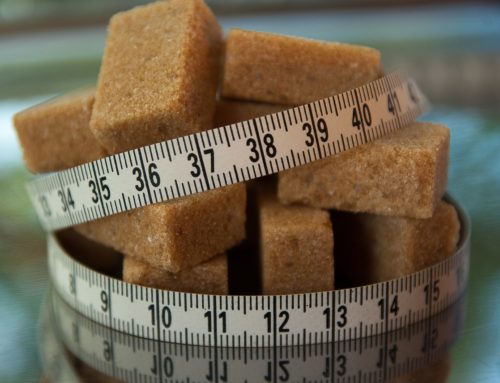A perfect example of what we’re talking about here is Coca-Cola’s new ad campaign, which focuses on the mistaken belief that beating obesity is a matter of counting calories. This theory has been found to be patently false. In short, you do not get fat because you eat too many calories and don’t exercise enough, even though that’s exactly what Coca-Cola will again instill into your children.
It’s important to understand that you get fat because you eat the wrong kind of calories. At the end of the day, your consumption of carbohydrates, whether in the form of grains and sugars (especially fructose), will determine whether or not you’re able to manage your weight and maintain optimal health. This is because these types of carbs (fructose and grains) affect the hormone insulin, which is a very potent fat regulator. Fats and proteins affect insulin to a far lesser degree. Kudos to The Atlantic for calling Coca-Cola on its misleading tactics in its article titled, Coke’s Unconscionable New Ad:
“Coca-Cola’s latest attempt to position itself against the rising tide of concern about the role of sodas in the obesity epidemic is unconscionable, because of this statement: ‘All calories count. No matter where they come from including Coca-Cola and everything else with calories.’
For Coca-Cola to suggest that all calories are equal flies in the face of reality as best as we can determine it… Coca-Cola wants us to ignore the considerable research confirming that sugary soda is a major contributor to obesity, and that it has no nutritional value… Coca-Cola could use its considerable advertising muscle to promote healthy exercise, yes, but when it does so as a ploy to confuse the public about the dangers of its products, that’s not a public service, that’s unethical.”
Remember, each can of Coke contains about 35 grams of sugar, which alone exceeds your daily recommended intake of fructose. Ideally, you’ll want to keep your fructose intake below 25 grams a day, or 15 grams if you are overweight, or have heart disease, diabetes, or any other disease stemming from insulin resistance.
I cannot think of any instance where you might need a soda in order to maintain correct “energy balance.” You can achieve optimal health without any added sugar or artificial sweeteners. In fact, if you want to understand energy balance, read up on how to become fat adapted rather than being a sugar burner. This requires cutting out virtually all added sugars.
Still, Coca-Cola’s vehement refusal to accept responsibility for leading you astray does not surprise me. Just take a look at the history of Coca-Cola’s advertising, and you’ll quickly realize that this leopard is not about to change its spots anytime soon. Two sites offering this history lesson include Arandilla’s “Coca-Cola Advertising Through the Years” blog , and NPR’s blog page , “Vigor, Brain Power and Other Health Claims From Coke’s Advertising Past.”
Why Calorie Counting Doesn’t Work Dr. Robert Lustig, an expert on the metabolic fate of sugar, explains that fructose is “isocaloric but not isometabolic.” This means you can have the same amount of calories from fructose or glucose, fructose and protein, or fructose and fat, but themetabolic effect will be entirely different despite the identical calorie count. This is a crucial point that must be understood.
Fructose is in fact far worse than other carbs because the vast majority of it converts directly to FAT, both in your fatty tissues, and in your liver. And this is why counting calories does not work… As long as you keep eating fructose and grains, you’re programming your body to create and store fat.
Furthermore, research by Dr. Richard Johnson, chief of the Division of Renal Diseases and Hypertension at the University of Colorado and author of The Sugar Fix and The Fat Switch, demonstrates that large portions of food and too little exercise are NOT solely responsible for why you are gaining weight. Rather it’s fructose-containing sugars that cause obesity—not by calories, but by turning on your “fat switch,” a powerful biological adaptation that causes cells to accumulate fat in anticipation of scarcity (or hibernation). According to Dr. Johnson, based on his decades of research:
“Those of us who are obese eat more because of a faulty ‘switch’ and exercise less because of a low energy state. If you can learn how to control the specific ‘switch’ located in the powerhouse of each of your cells – the mitochondria – you hold the key to fighting obesity.”
There is actually some encouraging news in this mess. According to Beverage Digest, soda consumption in the US has been on a steady decline since 1998. A recent article in The Atlantic shows consumption of soda “in freefall,” with US consumption having declined by 40 percent since 2003. Unfortunately, many are simply switching to zero calorie or low-cal beverages, which Coca-Cola is now trying to boost, and quite frankly, if I had to choose between these two evils, I’d choose regular soda, as artificial sweeteners are likely even worse for your long-term health. In fact, artificial sweeteners have been shown to produce even MORE weight gain than regular sugar and even high fructose corn syrup!





